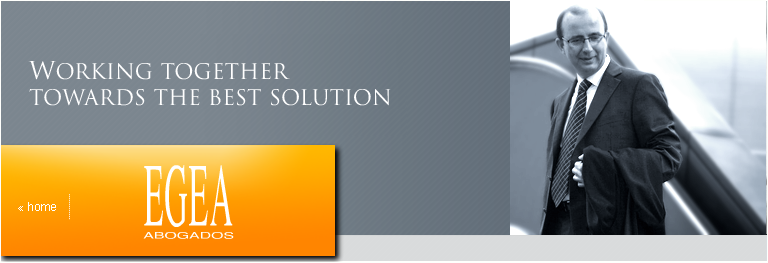12/22/2014
12/21/2014
11/07/2014
18th Edition of the Barcelona Meeting Point
EGEA LAWYERS was present at the 18th edition of the Barcelona Meeting Point, a professional and international property sector exhibition held on October 29th to November 2nd, 2014, with a Spanish lawyers team in the business lounge area for exhibitors, investors and professionals.
10/29/2014
Spain´s Reform Example
The Wall Street Journal
Oct. 29, 2014
Spain’s economy may be turning a corner. The Bank of Spain reports growth of 0.5% in the third quarter, meaning the country is on track to meet, and probably exceed, the government’s projection of 1.3% growth for 2014. The economy added 151,000 jobs, and unemployment fell 0.8 percentage points to 23.7%—still a numbing figure, but well down from last year’s 26%.
This is rare good news as investors worry that the rest of the Continent is slipping back into recession. So perhaps it would behoove Spain’s neighbors to attempt the same kinds of supply-side reforms that Prime Minister Mariano Rajoy and Finance Minister Cristóbal Montoro have been undertaking to good effect.
One crucial reform has dealt with labor laws. A 2012 package altered Spain’s notoriously rigid Derecho Laboral by making it easier for employers to dismiss workers if a business needs to do so for economic reasons. It also reduced the required compensation for dismissals deemed “unfair” under law and facilitated the hiring of employees on a probationary basis.
Then there is tax reform. Spain’s headline corporate rate will drop to 25% by 2016, from 30% today. Messrs. Rajoy and Montoro are also cutting the personal-income tax rate for most brackets. The lowest-income group, those earning less than €12,450 ($15,847), would see their rate drop to 19% by 2016 from 24.75% today. Those in the top bracket earning €300,000 or more a year will pay 45% in 2016, down from 52% today. Spaniards will by 2016 see an average 12.5% reduction in their tax bill.
That’s still not enough. Spain’s work-force participation rate is just under 60% and economists estimate that up to half of the recent decline in the jobless rate is attributable to people emigrating or otherwise dropping out of the labor market. More than half of Spanish unemployment is long-term. Spaniards often get by in the country’s gray market, which by some estimates accounts for as much as 25% of GDP. That may mean that real unemployment is less than advertised. But it also shrinks the tax base while leaving millions of Spaniards in low-end, and often dead-end, jobs.
That’s a problem that can only be addressed with further labor-market liberalization, especially by sharply limiting judicial discretion to reinstate dismissed workers. Additional tax cuts would also help. As we noted in June, Mr. Rajoy made the mistake of lowering the income threshold for the top tax rate to €60,000 from €300,000, meaning some middle-income earners will be forced to pay higher tax rates despite the cuts. But middle- and upper-income earners also need incentives to work, invest, build businesses and create jobs.
Still, Messrs. Rajoy and Montoro deserve credit for the Continent’s only real turnaround story in this crisis—and for doing so despite opposition from technocrats in Brussels and the International Monetary Fund in Washington. As recently as July, the Fund scolded Madrid for failing to raise “excise duties and environmental levies” that are in line with those imposed by its “European peers.” Heaven forefend. Maybe it’s time those peers got in line with what Spain is doing instead.
7/06/2014
New Portal Helps SMEs ‘Go International’
To help EU-based SMEs extend their business to markets beyond the EU, The European Commission recently launched the SME Internationalisation Portal. The Portal aims to give SMEs clear and easy access to the broad range of existing public services.
New Portal Helps SMEs "Go International"
1/11/2014
Subscribe to:
Posts (Atom)




